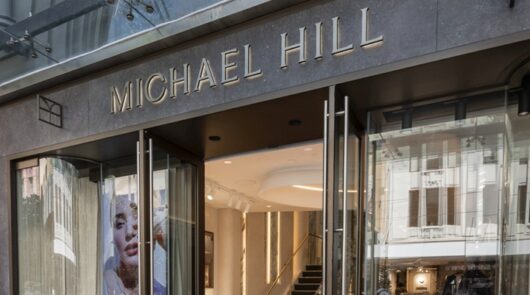The retail marketing landscape is more dynamic than ever, so understanding which trends are worth pursuing – both from the consumer’s and the business’s perspective – and which ones are just noise, will be critical to achieving growth in the year ahead. “If I were to lay a one-way bet, continued commercial pressures and shrinking marketing budgets will remain in 2025,” Nicole Miranda, director of client services at advertising agency Spinach, told Inside Retail. In this challenging e
nging environment, marketers will need to deliver bigger returns on less investment.
“Demonstrating the critical role marketing plays in driving business growth will continue to be a priority while marketers juggle bigger strategic imperatives such as sustainability, ethical sourcing, new technology and innovation,” Miranda added.
To help marketers focus their resources and refine their strategies for the year ahead, we asked several brand CMOs and marketing experts to share their top marketing trends for 2025. Here are threecommon themes that came to the fore.
Real, lo-fi authenticity and community building
As consumers get savvier about what is real user-generated content versus what just looks like organic content – but is actually paid advertising – brands need to adapt to deliver a new version of authenticity that customers truly connect with.
“People are sick of seeing perfect photoshoots and brands showcasing a lifestyle that feels increasingly out of reach as economic pressures truly affect consumer purchase behaviour,” Hannah Neumann, head of marketing at Hey Bud Skincare, told Inside Retail.
While authenticity has been a buzzword in retail marketing for some time, Neumann believes it has reached a tipping point, and businesses need to go all in.
“2025 is the year to give your customers authenticity – but the real, actual, lo-fi version of it they interactwith in their everyday lives, not just on socials. And even better – create spaces for them to connect and build this for themselves, with a curation level that feels very low-touch from the brand,” she said.
Facebook groups like Mecca Chit Chat, which boasts over 235,000 members, or even Hey Bud’s group, which has amassed over 17,000 followers, are a good example of this.
Liana Lorenzato, general manager and CMO of sexual wellness brand Vush, agrees that community building will be a priority for retailers in the year ahead.
“Instead of one-sided marketing, companies will invest in creating safe spaces – online and offline – where customers can connect, share experiences and feel part of something bigger,” she told Inside Retail. “Platforms like Discord, private social media groups and brand-hosted forums will become central to these efforts.”
Meanwhile, Ecom Nation co-founder Mal Chia predicts employee experts and local community specialists will take the place of traditional influencers in retailers’ advocacy strategies in 2025.
“Running retailers like On and Brooks are increasingly partnering with local running coaches, physiotherapists and running clubs, while outdoor brands are collaborating with local wilderness guides and environmental experts,” Chia told Inside Retail.
“These partnerships provide authentic, specialised content and advice that resonates more deeply with consumers than traditional influencer content, while building genuine community connections that drive both trust and sales.”
The strategic return to physical retail
In keeping with consumers’ desire for authenticity and community, Chia believes experiential retail stores will be a top marketing trend in 2025. “The narrative of physical retail’s demise has been thoroughly debunked by the sustained resurgence of bricks-and-mortar since pandemic lockdowns lifted,” he said. “This wasn’t just a temporary reaction to confinement – it signalled a fundamental shift in how physical retail serves brand strategy.”
According to Chia, traditional transaction-focused stores are giving way to dynamic environments where retailers use pop-ups and events as living laboratories – gathering customer insights, testing concepts, and building communities. These spaces have become strategic assets that inform product development, marketing strategy and customer experience design.
One example of this is US-based premium activewear brand Alo Yoga,vwhich has taken an innovative approach to experiential retail, combining stores, wellness studios and community hubs to create immersive brand experiences that extend beyond traditional commerce.
“Their pop-up events and wellness sanctuaries have become destinations for their community, driving both brand engagement and sales while providing valuable insights into customer preferences and behaviours,” Chia said.
Integration of AI and data-driven personalisation
Finally, marketing leaders say artificial intelligence (AI) will be even more of a focus in 2025, as retailers seek to hyper-personalise their shopping experiences in real-time.
“Rather than being a ‘trend’, using technology to more intuitively connect customers with products is actually going to become a baseline expectation for online retailers,” Joanna Robinson, CMO of The Iconic, told Inside Retail.
The online fashion retailer recently launched multi-modal search (MMS), a sophisticated search technology that enables users to query and retrieve information using multiple modes of input, such as text, voice, images and even gestures.
“We’ve also rolled out metadata enhancements to extract attributes from online imagery to make searches more effective, and we are constantly looking at new recommendation engines to help spotlight relevant content for our customers,” Robinson said.
This includes the company’s ‘Wear it With’ algorithm, which helps to inspire customers by suggesting complementary products so they can ‘shop the whole look’.
“AI tech is moving very quickly, and it’s already transforming how we personalise for our customers and the shopping experience,” she said.
Jim Ritchie, strategy director and partner at US+US brand agency, predicts retail marketing will become a balancing act between understanding and adopting new technologies and delivering a consistent and positive brand experience.
“With less human involvement in deploying a brand in-market, baking in brand DNA will be essential to maintain relevance, connection and, most importantly, trust,” he told Inside Retail.
This story first appeared in Inside Retail’s 2025 Australian Retail Outlook, powered by KPMG. You can download the full report here.







